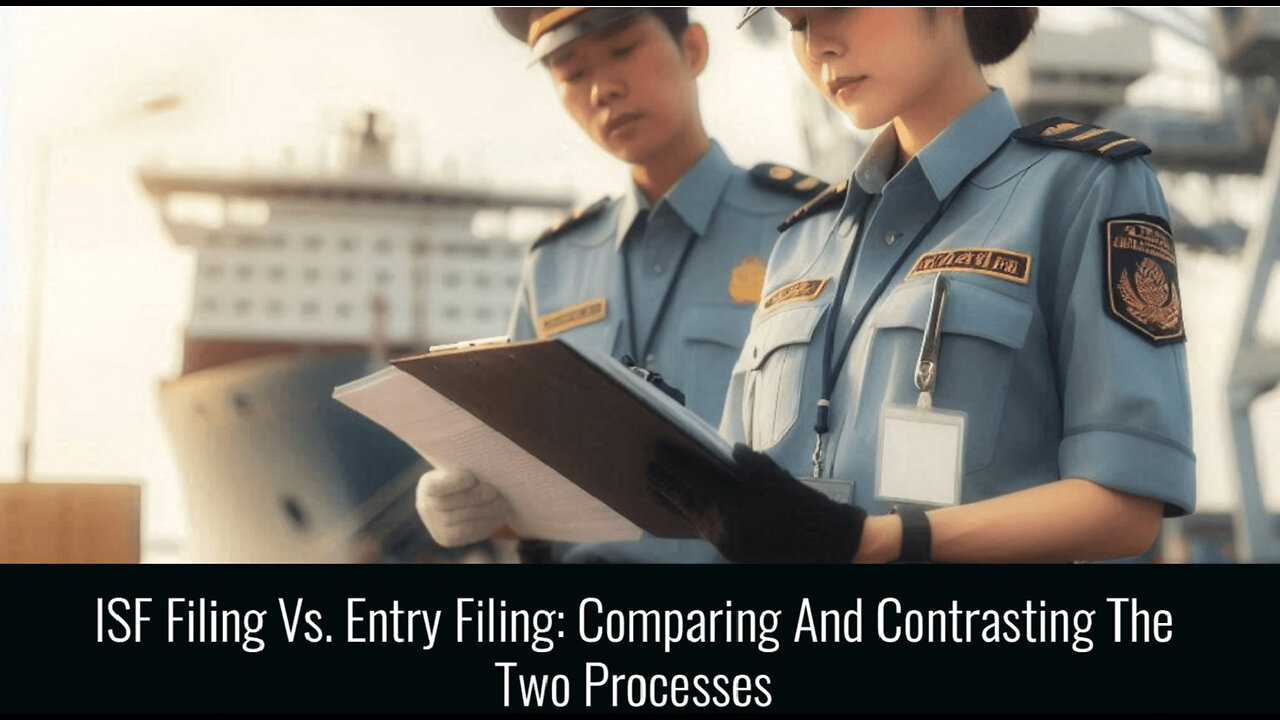Premium Only Content

Mastering ISF Filing and Entry Filing: A Guide for Importers
ISF Depot // 661-246-8217 // [email protected] // www.isfdepot.com
This response provides a deep dive into the concepts of ISF filing versus entry filing in the context of customs brokerage. It explains the purpose and requirements of ISF filing, highlighting its role in enhancing cargo security. It also discusses the role of entry filing in providing detailed information about the imported goods for duty assessment and compliance. The response compares and contrasts the timing, level of detail, and consequences of non-compliance between ISF filing and entry filing. Additionally, it emphasizes the importance of working with a licensed customs brokerage to navigate through these complex processes and avoid costly mistakes. The response concludes by summarizing the key points and encouraging viewers to stay tuned for more topics related to customs brokerage and international trade.
#usimportbond #isfcustomsbroker #uscustomsclearing #isfentry
Video Disclaimer Here: This tutorial is independent and not affiliated with any US governmental entities.
00:27 - ISF filing is mandatory for all ocean shipments bound for the United States, providing advance information to CBP for cargo security.
00:52 - Entry filing involves providing detailed information about imported goods for duties, taxes, and compliance with regulations.
1:48 - ISF filing must be submitted 24 hours before vessel departure, while entry filing is done once goods have arrived in the U.S.
2:18 - Consequences for non-compliance differ between ISF and entry filing.
2:38 - Working with a customs broker is crucial for both processes to ensure compliance and avoid costly mistakes.
-
 3:40
3:40
ISF Depot
2 days agoMastering ISF Filing: How to Expedite Customs Clearance and Avoid Delays
1 -
 LIVE
LIVE
putther
1 hour ago $0.84 earned⭐ Bounty Hunting on GTA⭐
104 watching -
 LIVE
LIVE
Total Horse Channel
1 day agoAMHA 2025 9/20
681 watching -
 1:53:15
1:53:15
I_Came_With_Fire_Podcast
14 hours agoThe Satanic Cults Convincing Kids to Commit Violence
36.3K15 -
![Mr & Mrs X - [DS] Created Antifa To Push An Insurgency In This Country - Ep 8](https://1a-1791.com/video/fww1/f9/s8/1/k/f/O/j/kfOjz.0kob-small-Mr-and-Mrs-X-DS-Created-Ant.jpg) 1:02:13
1:02:13
X22 Report
6 hours agoMr & Mrs X - [DS] Created Antifa To Push An Insurgency In This Country - Ep 8
140K49 -
 1:13:24
1:13:24
Wendy Bell Radio
10 hours agoPet Talk With The Pet Doc
42K42 -
 1:19:30
1:19:30
Game On!
1 day ago $11.10 earnedCollege Football Week 4 Betting Preview!
150K5 -
 26:04
26:04
Artur Stone Garage
4 days ago $2.29 earned$500 Civic: Will It EVER Drive Without Breaking Down?
36.3K7 -
 31:44
31:44
SouthernbelleReacts
2 days ago $4.05 earned“E.T. Phone Home! 🛸 Emotional Mom Style Reaction to E.T. the Extra-Terrestrial (1982)”
51.7K6 -
 20:10
20:10
JohnXSantos
1 day ago $1.81 earnedI Built a FAKE Luxury Brand With $100 In 7 Days
39.3K3